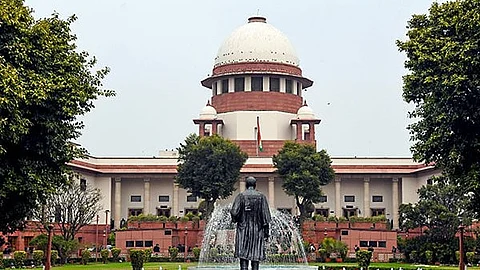

The National Task Force (NTF), constituted by the Supreme Court (SC) after the gruesome RG Kar Medical College and Hospital incident, has concluded that a separate Central law to safeguard healthcare workers is unnecessary.
As reported by The Hindu, the NTF’s report highlights that states already possess adequate legal mechanisms to address minor offences, while the Bharatiya Nyaya Sanhita (BNS), 2023, can handle serious crimes. It may be noted that BNS is India’s revised criminal code that consolidates and streamlines laws related to criminal offences, replacing the Indian Penal Code (IPC).
“State laws have adequate provisions to address day-to-day minor offences, and serious offences can be addressed by BNS. A separate Central law to deal with offences against healthcare professionals is, therefore, not required,” the report emphasised.
The NTF report also outlines a range of measures to enhance safety in healthcare establishments. These include deploying trained security personnel, improving coordination with local police, ensuring night-shift safety protocols, and providing transportation for medical staff.
Additional recommendations, according to The Hindu, cover high-security features such as CCTV installations, biometric access controls, and improved communication between medical professionals and patients’ families.
According to The Hindu, the NTF categorised its recommendations into short-term, medium-term, and long-term measures, following consultations with 53 associations and over 1,700 stakeholders.
Suggestions also included filing First Information Reports (FIRs), including zero FIRs, within six hours of reported violence and ensuring a senior doctor’s presence in emergency areas round the clock.
